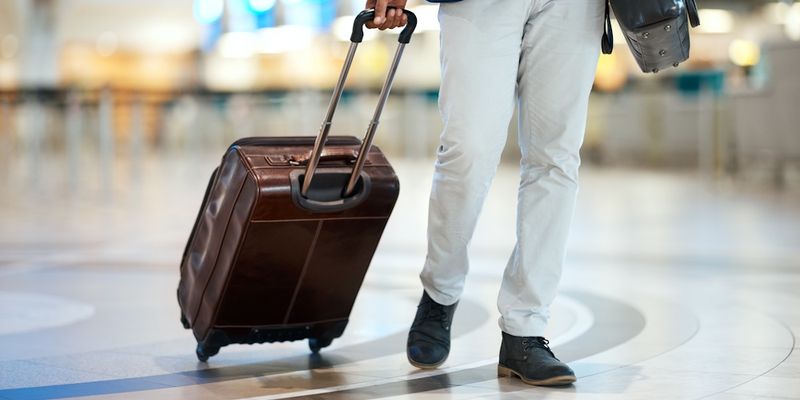Just a few years after the COVID-19 pandemic, a fresh wave of disruption is testing the travel industry’s resilience. From shifting global trade dynamics to evolving traveler expectations, uncertainty continues to pressure the industry in new and often unexpected ways.
The ability to reactively respond is no longer enough. Travel company leaders must continue to evolve their mindset, building on the resilience they’ve already demonstrated, to remain adaptive in the face of change.
Economic uncertainty is weighing on travelers in many parts of the world. According to Accenture’s Consumer Pulse Survey 2025, more than half of consumers (54%) are feeling unusually high levels of uncertainty—a sentiment that has doubled in the past year, with only 24% reporting uncertainty in December 2024. Signs are also pointing to shifts in sentiment towards spend on travel.
With many travelers reaching the ceiling of what they can afford, many may choose to travel close to home or cut-back entirely to help make their budgets stretch further. On the flipside, travel companies are also facing increased operational and revenue risks due to soaring costs.
The road ahead demands resilience
In times like this, travel companies may be tempted to cut costs and ride out the economic shock wave. They will also be reluctant to raise prices for the fear of losing value-driven travelers and damaging loyalty. But with margins already under strain, these tactical measures, while offering short-term relief, are not sustainable for long-term growth.The path forward
With many changes to navigate, there are four areas travel leaders should focus time, effort and resources on.
1. Operational resilience
Operational resilience hinges on the ability of travel companies to react to fluctuations in operating costs to protect margins and boost productivity. This involves redesigning operations to be more agile and responsive to changing conditions.
An airport digital twin, for instance, is a real-time, virtual replica of an airport's physical infrastructure, systems and operations. Using this dynamic digital model, airport operators can simulate disruptions and monitor complex scenarios such as flight delays, peak passenger surges, weather disruptions or equipment failures and test their impact before they happen.
In the hospitality industry, we are seeing some hotel operators responding to ongoing labor shortages by investing in automation for front desk check-ins and housekeeping task management.
2. Commercial resilience
As costs rise and demand remains unpredictable, travel companies face a tough balancing act: protecting margins without pushing customers away. One option could be to enhance offerings and marketing strategies that follow the customer by focusing on domestic travel experiences. Another could be to seek growth in alternative revenue streams that go beyond selling rooms and seats.
To support such efforts, travel companies would do well to turn to enterprise-grade, AI-powered platforms that provide real-time visibility into shifting traveler behavior, demand patterns and operational risks. These systems analyze a wide range of live data signals such as booking trends, search volumes and customer sentiment to uncover emerging demand pockets and guide smarter decision making.
When embedded within a broader, data-driven pricing strategy, AI allows organizations to respond with speed and precision, driving measurable impact even in highly volatile conditions.
3. People resilience
People are at the core of every resilient organization. Yet rising concerns around inflation, job security and a shifting labor landscape are challenging employee morale and retention.
The good news? Companies have a growing toolkit to build a more adaptable and engaged workforce. Real-time sentiment monitoring, for instance, can surface early signs of stress or dissatisfaction, enabling timely, targeted action to support employee wellbeing, sustain productivity and foster lasting trust.
Simplifying processes and embedding AI so that employees can work alongside advanced technologies is essential. In fact, according to Accenture’s 2025 survey, 94% of all travel leaders surveyed said their organizations have revised their talent strategies to address developments in the AI economy (such as generative AI).
4. Technology resilience
As travel leaders navigate rising complexity, from fluctuating demand to operational uncertainty, there’s a growing case for embedding autonomous AI agents across key business functions. These aren’t just chatbots or simple automation tools. We're talking about intelligent systems that can learn, adapt and act on their own across areas like marketing, operations and customer service.
These agents continuously monitor real-time data and optimize decision-making processes, such as analyzing booking patterns and projecting dynamic demand for each region, location and segment. With potential challenges in the geopolitical and cyber landscape, enabling more secure processes is crucial. Strategic planning regarding digital and cloud sovereignty, alongside exploring alternatives that offer greater control over data, is essential for safeguarding and enhancing operational efficiency.
The time is now
The travel industry has proven its resilience in the past, now it must scale it. Those who invest in digital and human adaptability today will be better positioned for whatever comes next.
